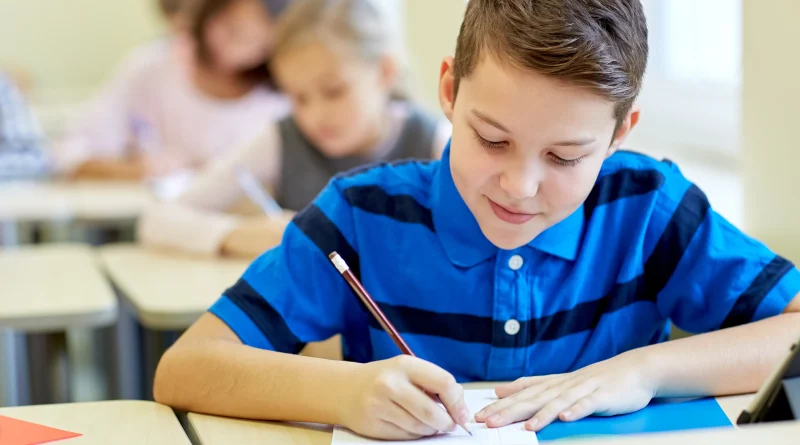Thinking Outside The Classroom: Fresh Approaches To Learning
In our dynamically changing world, thinking outside the box is more crucial than ever. It is a valuable skill to cater to problems with fresh ideas and perspectives in any field. According to authentic research, e-learning and traditional methods may not always be helpful ways to educate and engage learners. To make an impression, it is necessary to think outside the box and take innovative approaches.
The primary objective of schools is to prepare students for a life that is beyond school. Society demands higher self-awareness and more professional skills. One of the simplest ways to assist advanced students is by including learning experiences outside the classroom as well. Taking learning outside the classroom shows students the real-life experience and practical implementation of theories that they are learning at school.
In this article, we will learn about the advanced and creative strategies that can transform the way we deliver education. Tighten your seat belts to break the e-learning and traditional landscape and take your digital learning experiences to another level.
Different Ways Education Outside The Classroom Offers A Better Workforce And Future
1. Classroom Outside Earning Opportunities Offer Valuable Practical Experiences
Opportunities like apprenticeships, internships, volunteering, and job shadowing offer students a distinctive, in-depth perspective within their desired career field. This gives students a chance to learn relevant academic studies in the practical world. This assists them in the decision-making process that almost every student faces while choosing their career. It can also assist students to understand what they don’t want to become in their career. For example, if someone wants to become a writer, then they can join internships in novel ghostwriting or provide freelancing services. This will help them to earn money as well as polish their writing skills.
2. Participating In Outside Class Academics Positively Influence Academics
According to authentic research outside the classroom, activities help students boost their attendance, learning experiences, aspirations for education, and academic achievements. This lets the students learn in various settings, assisting students in applying their knowledge, which is important to meaningful and deep learning experiences.
3. Former Apprentices And Interns Have A Competitive Benefit Over The Recruiters.
Apprenticeships and Internships like responsibility, professionalism, and experience in the field offer a competitive benefit over the recruiters. These experiences also offer students broad networking opportunities that they can utilize to get a job. Employers usually hire apprentices and interns for full-time positions since they already have good skills and experience.
4. Volunteering Builds Responsibility, Reliability, And Let The Students Earn New Skill
Volunteering can be beneficial in developing valuable skills for training and the workplace. This requires skills like responsibility and reliability and could be an advantageous addition to a resume. Serving as a volunteer also lets the students expand their networks, experience various career fields, and learn a sense of giving back to society and the community.
5. Participating In Extracurricular Activities Helps Students To Learn Teamwork
Participating in extracurricular activities helps the students to learn teamwork, team responsibility, competition, and a sense of diversity and culture. Students who take part in these activities, such as band clubs, sports teams, and other group-related activities, get skills that can be useful in the workplace. According to Fortune magazine, if one wants to succeed in business, then it is necessary to play high school sports and other activities. This helps students to develop some crucial skills that give them a token to enter into a workplace.
6. Outdoor Learning Activities Enhance Environmental Awareness
By attracting children to the natural world, outdoor learning activities encourage environmental care for nature and literacy. Significant outdoor experiences influence children to grow powerful connections to both the people around them and the natural world. According to the nature network, children who are attached to nature are more satisfied with life, good health, and sustainable behaviors.
From an operational point of view, purposely designed outdoor learning environments offer different advantages. Developing the natural ecology of an area minimizes the frequency at which the area must be maintained and mowed. In return, this enhances the quality of air and minimizes the cost of keeping the school building at a cool temperature. Lastly, letting nature cultivate a schoolyard enhances the biodiversity of the space. Let students observe the return of local species to the area.
7. Outside The Classroom Chances Offer Employers The Students Who Can Come Up With Fresh Ideas And Perspective
Interns bring fresh energy, ideas, and new perspectives to the workplace, which can build up the capacity of an organization’s workforce. They are better at cross-questioning and come up with better ways that even a manager couldn’t find. Employers can activate these innovative ideas through brainstorming sessions and motivating interns to speak up in between meetings. Students can easily find internships for UAE Ghostwriting, designing, development, etc.
Outside the classroom, chances are a fruitful way for schools and businesses to support education and help students facilitate a bright and positive future.
Frequently Asked Question
- What type of learning can you do outside the classroom on your own?
Below, we have mentioned a few activities that you can try outside the classroom for better learning.
- Listen to your favorite podcast topics.
- Watch tutorials or videos.
- Attend webinars and conferences.
- Read trusted sources and articles.
- Get enough working experience.
- What is the theory of learning outside the classroom?
Learning outside the classroom is a growing movement of educating subject content while at the same time encouraging communication, critical thinking, teamwork, interpersonal and dispute resolution skills, connection, and creativity with nature.
- How do we keep students engaged outside the classroom?
The real engagement of students starts outside the classroom.
- Manage welcome back talks.
- Encourage student connection through different clubs and programs.
- Make a culture of listening through committees.
- Make a sense of belonging with the help of social events.
It’s A Wrap
In conclusion, when it comes to learning, just don’t follow the traditional trends but think outside the box. Be creative, try innovative methods, and always keep the learning experience on top. The world and its educational styles are evolving, so stay ahead of the curve by grazing, changing, and giving a chance to unconventional approaches. By thinking differently and being bold, you can truly make engaging and influential learning experiences that will make you stand out from the the crowd. Be aware of the limits in learning that you set for yourself. So push boundaries, be different, and transform the way you learn. It’s the right time to change the future of education. So, are you ready to set up?



